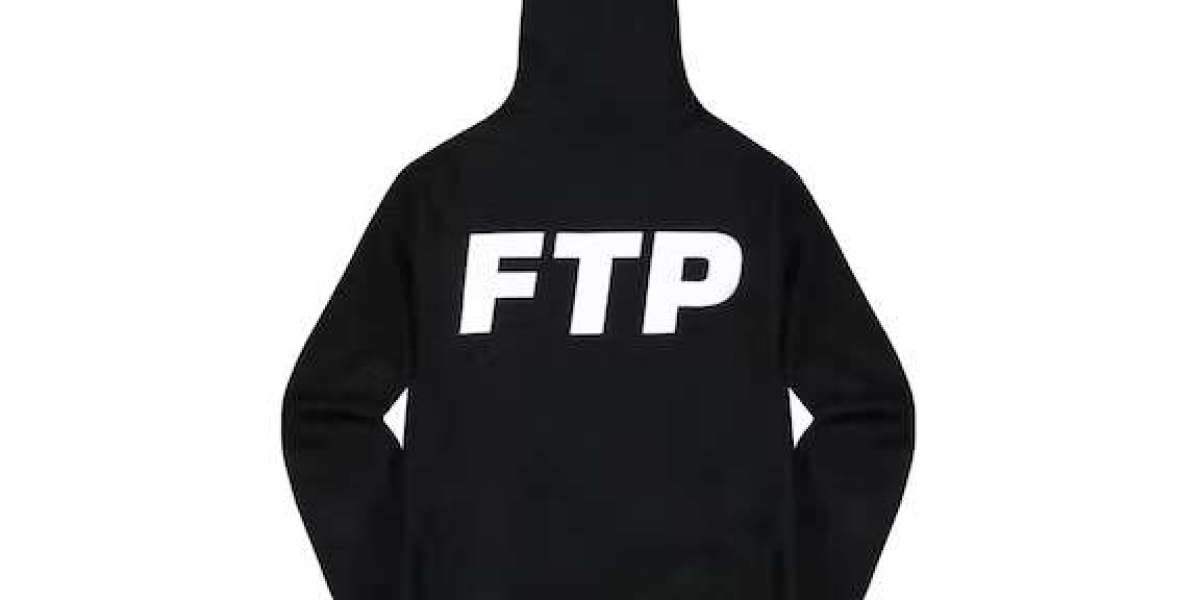FTP, short for F**ThePopulation*, is more than just a streetwear brand—it's a rebellious statement. With bold slogans, controversial designs, and an anti-establishment attitude, FTP has built a loyal following among the youth culture and underground fashion scenes. While mainstream brands chase trends, FTP stays raw, aggressive, and unapologetically real. Let’s dive into what makes FTP Clothing a standout name in today’s fashion world.
The Origins of FTP Clothing
Founded by Zachary Clark
FTP was founded in 2010 by Zachary "Zac" Clark, who started designing shirts at the young age of 15. What began as a hobby evolved into a full-fledged brand when Clark noticed the demand for his graphics and slogans. His motivation wasn’t commercial—it was personal. FTP was born from frustration, a middle finger to authority, and a reflection of his life experiences.
A Name That Sparks Controversy
The acronym “FTP” stands for “F*** The Population,” a phrase that immediately sets the tone for the brand. It challenges societal norms, reflects distrust in government systems, and speaks to youth disenfranchisement. Unsurprisingly, it drew both controversy and admiration. For fans, it’s not just about clothing—it’s a shared philosophy.
The Aesthetic of FTP: Grit, Anger, and Authenticity
Raw and Edgy Designs
FTP’s designs often incorporate provocative imagery, aggressive fonts, and rebellious slogans like “Don’t Trust Anyone” or “FTP Worldwide.” The graphics frequently draw from themes like police brutality, surveillance, censorship, and mental health, often in gritty black-and-white color schemes with bold red accents.
The clothing reflects raw emotion: anger, defiance, and pain. This authenticity is why fans resonate with it deeply.
Simplicity Meets Message
Despite its complex emotions, FTP’s apparel sticks to simple silhouettes—hoodies, tees, caps, jackets, and pants. It’s not about luxury fabrics or tailoring. It's about statement over style, meaning the message printed on the piece is what carries weight, not the stitch or cut.
FTP's Cult Following and Influence
Underground Support and Street Credibility
FTP didn’t grow through celebrity endorsements or big marketing budgets. It gained traction through word-of-mouth, social media virality, and the underground music scene—especially rap and punk subcultures. Independent artists began wearing FTP, not because they were paid to, but because they identified with the brand’s ethos.
This helped cement FTP’s place as a label with real street credibility—not manufactured coolness.
Collaborations and Muted Drops
Though FTP rarely collaborates, when it does, it’s impactful. One of its most high-profile collaborations was with LAPD riot gear supplier, which caused outrage but aligned with FTP’s theme of irony and social commentary. Another big moment was its 2018 pop-up shop, which had fans camping outside for hours, reinforcing the brand’s cult status.
FTP also thrives on scarcity—limited drops that sell out fast, creating high resale value and desirability. You can’t just walk into a store and buy FTP; you have to watch for releases, know the timing, and act fast.
The Social Message Behind the Brand
A Critique of Authority
FTP isn’t just anti-fashion—it’s anti-system. Its apparel frequently mocks political figures, police departments, government surveillance, and the media. It’s a platform for anti-authoritarian sentiment, expressing what many young people feel but don’t say out loud. https://ftpclothings.net/
Zac Clark once mentioned that FTP is about “telling people what’s wrong with the world, not telling them how to fix it.” The brand isn’t here to provide solutions. It’s here to express the frustration millions feel.
Mental Health and Vulnerability
Beneath the aggressive slogans, there’s also vulnerability. FTP has dropped pieces related to suicidal thoughts, depression, and isolation. In a world obsessed with perfection and image, FTP dares to show the darkness many hide. That emotional honesty has drawn a deeply loyal community of followers who feel seen.
Controversy and Criticism
Too Extreme for the Mainstream?
Given its name and aggressive tone, FTP is often labeled as "too extreme" or "problematic." Mainstream fashion and media outlets tend to avoid covering it. Some retailers refuse to carry the brand because of its offensive slogans. Critics argue that FTP glorifies violence or nihilism.
But that’s precisely what keeps FTP underground and raw. The brand doesn’t want mainstream acceptance. As Zac Clark put it, “If everyone likes it, I’m doing something wrong.”
Legal Scrutiny and Social Responsibility
With anti-police slogans and controversial graphics, FTP has also faced legal issues and pushback from authorities. While some accuse the brand of being socially irresponsible, others argue that it’s using fashion to highlight serious social injustices.
FTP walks a thin line between freedom of expression and offensive content—but that’s part of its edge.
Why FTP Matters in Streetwear
Standing Out in a Saturated Market
In a world where most streetwear brands imitate Supreme or chase the latest TikTok trend, FTP stands apart by refusing to conform. It’s not trying to be luxury, aesthetic, or Instagram-friendly. It’s gritty, punk-inspired, and brutally honest.
FTP shows that streetwear can be political, emotional, and genuinely rebellious—not just a look but a language.
Connection Over Commerce
At its core, FTP succeeds not just because of what it sells, but what it stands for. It connects deeply with fans who feel alienated, frustrated, or unheard. They wear FTP not just to look cool but to express their emotions and beliefs. This human connection gives the brand staying power that goes beyond fashion trends.
The Future of FTP Clothing
Growth on Its Own Terms
FTP continues to grow—but on its own t. Zac Clark remains fiercely independenefusing to sell out to larger corporations. He’s been clear about maintaining full creative control and staying true to the brand’s roots.
In a 2023 interview, Clark emphasized that FTP will never “become safe,” even if that means losing money. This means FTP’s future lies in its authenticity, exclusivity, and community-driven culture.
Evolution Without Compromise
While the core message of FTP remains the same, the brand is slowly evolving with more experimental designs, storytelling, and possibly even expanding its reach through international pop-ups and art installations. But the anti-establishment voice will always be its foundation.
Conclusion
FTP Clothing isn’t just another streetwear brand—it’s a movement, a message, and a mirror reflecting the frustrations of a generation. With its unapologetic stance, raw designs, and loyal underground following, FTP has earned its place as one of the most authentic voices in street fashion today.
For those who wear it, FTP isn’t just a style. It’s a statement: “We’re not okay with how things are—and we’re not afraid to say it.”








